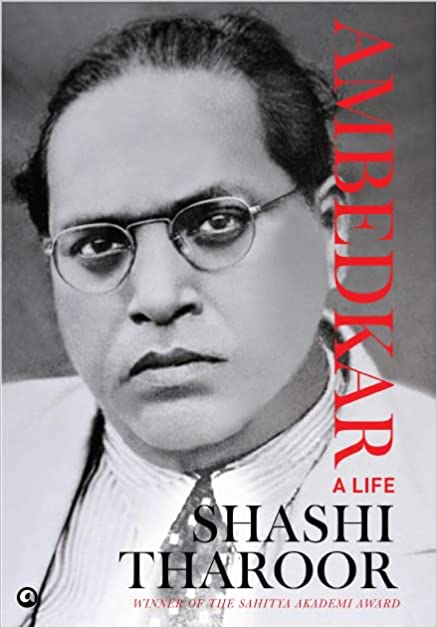
Babasaheb Bhimrao Ramji Ambedkar, MA, MSc, PhD, DSc, DLitt, Bar-at-Law, is today among the most revered of Indians, his statues across the country second only in number to those of Mahatma Gandhi. He even overtook Gandhi in a recent poll to determine the ‘greatest Indian’ of modern times, in which over 20 million votes were cast. All the major political parties vie with one another to claim him as their own. To the Dalits, he is a revered figure who was chiefly responsible for outlawing untouchability and fighting to give dignity to the community. And, most of all, he is hailed as the father of India’s Constitution, the principal reason why India continues to remain a democracy with liberal, secular, plural values (although all these are under siege at the present time) that seeks to uphold the rights of the individual and uplift the downtrodden. Writes Shashi Tharoor: ‘Dr Ambedkar’s greatness cannot be reduced to any one of [his] accomplishments, because all were equally extraordinary.’ In this new biography, Tharoor tells Ambedkar’s story with great lucidity, insight, and admiration. He traces the arc of the great man’s life from his birth into a family of Mahars in the Bombay Presidency on 14 April 1891 to his death in Delhi on 6 December 1956. He describes the many humiliations and hurdles Ambedkar had to overcome in a society that stigmatized the community he was born into, and the single-minded determination with which he overcame every obstacle he encountered. We are given insights into the various battles Ambedkar fought to make untouchability illegal, his disputes with the other political and intellectual giants of his era, including Gandhi and Nehru, and his determination to invest India with a visionary Constitution that enshrined within it the inalienable rights of the individual and modern conceptions of social justice. ‘In so doing,’ writes Tharoor, ‘he transformed the lives of millions yet unborn, heaving an ancient civilization into the modern era through the force of his intellect and the power of his pen.’ Deeply researched, searching, and insightful, Ambedkar: A Life offers readers a fresh and profound understanding of one of the greatest Indians who ever lived.
Author

Shashi Tharoor is a member of the Indian Parliament from the Thiruvananthapuram constituency in Kerala. He previously served as the United Nations Under-Secretary General for Communications and Public Information and as the Indian Minister of State for External Affairs. He is also a prolific author, columnist, journalist and a human rights advocate. He has served on the Board of Overseers of the Fletcher School of Law and Diplomacy at Tufts University. He is also an adviser to the International Committee of the Red Cross in Geneva and a Fellow of the New York Institute of the Humanities at New York University. He has also served as a trustee of the Aspen Institute, and the Advisory of the Indo-American Arts Council, the American India Foundation, the World Policy Journal, the Virtue Foundation and the human rights organization Breakthrough He is also a Patron of the Dubai Modern High School and the managing trustee of the Chandran Tharoor Foundation which he founded with his family and friends in the name of his late father, Chandran Tharoor. Tharoor has written numerous books in English. Most of his literary creations are centred on Indian themes and they are markedly “Indo-nostalgic.” Perhaps his most famous work is The Great Indian Novel, published in 1989, in which he uses the narrative and theme of the famous Indian epic Mahabharata to weave a satirical story of Indian life in a non-linear mode with the characters drawn from the Indian Independence Movement. His novel Show Business (1992) was made into the film 'Bollywood'(1994). The late Ismail Merchant had announced his wish to make a film of Tharoor’s novel Riot shortly before Merchant’s death in 2005. Tharoor has been a highly-regarded columnist in each of India's three best-known English-language newspapers, most recently for The Hindu newspaper (2001–2008) and in a weekly column, “Shashi on Sunday,” in the Times of India (January 2007 – December 2008). Following his resignation as Minister of State for External Affairs, he began a fortnightly column on foreign policy issues in the "Deccan Chronicle". Previously he was a columnist for the Gentleman magazine and the Indian Express newspaper, as well as a frequent contributor to Newsweek International and the International Herald Tribune. His Op-Eds and book reviews have appeared in the Washington Post, the New York Times and the Los Angeles Times, amongst other papers. Tharoor began writing at the age of 6 and his first published story appeared in the “Bharat Jyoti”, the Sunday edition of the "Free press Journal", in Mumbai at age 10. His World War II adventure novel Operation Bellows, inspired by the Biggles books, was serialized in the Junior Statesman starting a week before his 11th birthday. Each of his books has been a best-seller in India. The Great Indian Novel is currently in its 28th edition in India and his newest volume. The Elephant, the Tiger and the Cellphone has undergone seven hardback re-printings there. Tharoor has lectured widely on India, and is often quoted for his observations, including, "India is not, as people keep calling it, an underdeveloped country, but rather, in the context of its history and cultural heritage, a highly developed one in an advanced state of decay.". He has also coined a memorable comparison of India's "thali" to the American "melting pot": "If America is a melting pot, then to me India is a thali—a selection of sumptuous dishes in different bowls. Each tastes different, and does not necessarily mix with the next, but they belong together on the same plate, and they complement each other in making the meal a satisfying repast."